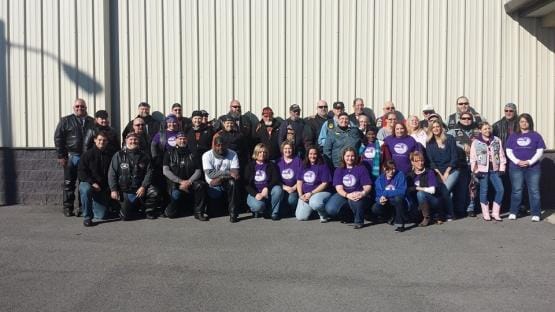Our ministry is dedicated to providing support for women struggling with life-controlling problems. By using the Word of God, acknowledging Jesus Christ as Lord, and living in obedience to His will, we aim to break the cycle of addiction.
ABOUT WOMEN AT THE WELL MINISTRIES
Women at the Well Ministries (WATW) is a long-term, faith-based discipleship program for adult women who are facing chemical dependency and other life-controlling problems. Located in Athens, Tenn., between Chattanooga and Knoxville, our residential program offers a Bible-based curriculum, counseling, and lifestyle discipleship to help clients overcome destructive behavior. Please note that we do not provide detoxification services on-site.
TREATMENT & ASSESSMENT
Potential clients undergo an initial health screening and online questionnaire before admission to ensure that our program is suitable for them. At Women at the Well Ministries, our treatment is rooted in adhering to Christian values, beliefs, and principles. Our Bible-based curriculum promotes introspective thinking and works alongside our Christian counseling.
The residential program at Women at the Well Ministries typically lasts between 12 to 15 months. During this time, women progress through two primary phases. Phase one involves participating in structured Bible study classes, pastoral counseling, and other activities that aim to cultivate a Christ-like character. This phase includes four to six hours a day of educational classes, counseling sessions, or chapel, as well as artistic expression sessions, nightly devotionals, and recreational therapy.
Therapy focuses on helping women identify self-defeating behaviors and false beliefs, replacing them with a genuine relationship with Christian philosophies and practices. Group and individual counseling sessions cover topics such as positive peer influence, accountability, conflict resolution, and personal responsibility. In phase two, clients take on a mentorship role for newer clients and begin receiving life skills and vocational training in areas such as clerical work, food management, cash register operation, merchandising, and janitorial duties. After completing core programming, residents may have the opportunity to enroll in our six-month intern program or our Emerging Leaders Program.
STAFF CREDENTIALS
Information regarding the facility’s treatment staff is currently unavailable.
ACCOMMODATIONS & AMENITIES
Our center, situated on 17 acres, provides a mountaintop campus with five buildings. Among these, one is dedicated to treatment and education, while three serve as staff quarters (some staff members reside on the premises). The residence building, with three levels, offers 27 beds, eight shared bedrooms, and nine bathrooms. In addition, there is a kitchen and common living areas. Residents are responsible for maintaining the residences and completing daily duties such as cooking, cleaning, and yard work.
WHAT ALUMNI SAY
Two former residents who were polled by Best-rehabs.com praised various aspects of our facility. One alum, Tanya, gave perfect five-star ratings for the treatment staff’s level of training and experience, as well as the facility’s cleanliness. She mentioned that the program requires a minimum 18-month commitment and has a highly structured approach. Another alum, P.L., also expressed approval of the facility, particularly highlighting the caring, supportive, and loving staff.
On Google, at the time of this writing, four individuals left reviews for our treatment center. Three of them gave a five-star rating, while one gave a one-star rating. Louise, in a representative review, praised the ministry for being Christian-based and not accepting government funding. She also mentioned that almost 50 women have graduated from the residential program. The only negative commentary came from someone complaining about our treatment center having a Facebook page.
FINANCING
According to our website, Women at the Well Ministries charges an admission fee of $400, and the program costs $300 per month. To offset the low cost of treatment, we rely on charitable support and donations. Additionally, clients are expected to participate in fundraising activities while in treatment.
